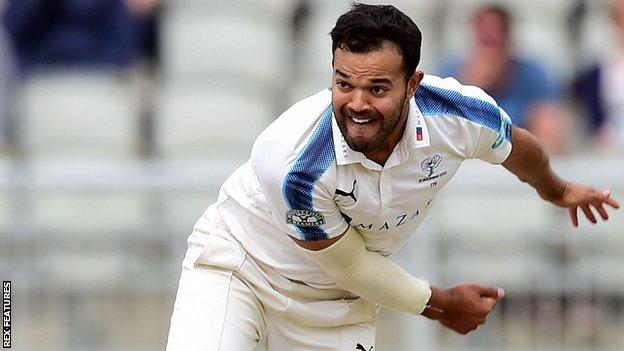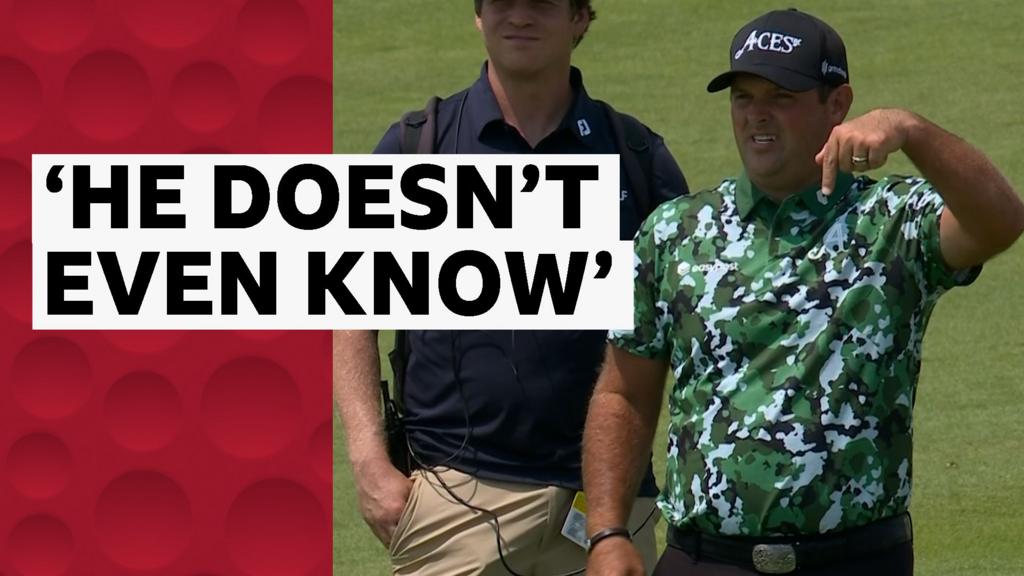ARTICLE AD BOX
 Azeem Rafiq became the youngest man to captain Yorkshire in 2012
Azeem Rafiq became the youngest man to captain Yorkshire in 2012It is the scandal that has engulfed cricket.
One of England's most historic sporting clubs embroiled in a damning episode, accused of being institutionally racist by one of their former players.
Azeem Rafiq, a 30-year-old former cricketer, says he has been left close to suicide after detailing racism encountered at Yorkshire County Cricket Club - who have been strongly rebuked for their response.
BBC Sport explains how the situation unfolded and what could come next.
Who is Azeem Rafiq and what did he say happened to him at Yorkshire?
Rafiq is a former professional cricketer who played the majority of his career at Yorkshire, between 2008 and 2018.
Born in Pakistan, he moved to England aged 10 and captained England teams at youth level. He also captained Yorkshire in 2012.
However, in September 2020, following an initial interview with Wisden, Rafiq told ESPN Cricinfo "institutional racism" encountered while at the club left him close to taking his own life.
He told BBC Sport he dreaded "every second" of his career and that a team-mate used a racially-offensive term linked to his Pakistani heritage.
What did Yorkshire do in response?
Yorkshire launched a formal investigation into Rafiq's allegations in September 2020 and chairman Roger Hutton said the club would be carrying out a "wider review" of their "policies and culture".
Law firm Squire Patton Boggs was appointed to carry out a full independent investigation.
On 13 November 2020, Rafiq gave his first statement to the inquiry, making a number of detailed racism allegations. Rafiq said he hoped to bring about "meaningful change".
Meanwhile, Rafiq launched a separate employment tribunal, which failed to find a resolution.
When did the investigation conclude and what did it find?
Yorkshire received the findings of the investigation in August 2021 and initially said they would release a statement in "the next couple of days".
Two days later the England and Wales Cricket Board wrote to Yorkshire asking for a copy of the findings.
The following day, Yorkshire, still yet to release the findings of the report, admitted Rafiq was "the victim of inappropriate behaviour" - something he said was downplaying racism - and offered him their "profound apologies".
Then on 10 September, following further pressure from MPs, Yorkshire released their own summary of the findings of the report, although the club were widely criticised for doing so during the abandoned fifth Test between England and India.
They said Rafiq was the "victim of racial harassment and bullying" with seven of the 43 allegations upheld, although the club said they could not release the full the report for legal reasons. They said there had been insufficient evidence to conclude the club were institutionally racist.
Rafiq questioned what punishments had been handed out to former players and a coach who had been found guilty of using racist language. He also questioned the validity of the investigation.
Yorkshire were ordered by an employment judge to send the full report of the findings to Rafiq and his legal team by 8 October, but the club missed the deadline.
Five days later, Yorkshire sent a heavily-redacted copy of the report to Rafiq.
What happened this week?
Despite the findings, Yorkshire said on 28 October that no-one would face disciplinary action following the report.
"There is no conduct or action taken by any of its employees, players or executives that warrants disciplinary action," the club said, after their own internal investigation into the findings.
But the story came to wider attention this week when ESPN Cricinfo published an article on Monday claiming a racist term about Rafiq's Pakistani heritage was regularly used towards him, but the investigation concluded it was "friendly and good-natured banter".
In response, Julian Knight MP, the chair of the Digital, Culture, Media and Sport (DCMS) select committee, called for the Yorkshire board to resign. UK Health Secretary Sajid Javid called for "heads to roll".
Knight called it "one of the most repellent and disturbing episodes in modern cricket history".
Kit supplier Nike, plus several of Yorkshire's sponsors, including Emerald Publishing, Yorkshire Tea, Tetley's beer and leisure club operators David Lloyd, either ended partnerships or said they would not continue deals.
On Wednesday, Rafiq's former team-mate Gary Ballance, the ex-England international, said he was responsible for some of the racist language Rafiq was subjected to during his time at Headingley.
Then on Thursday, the ECB delivered a strong response following a meeting of its board. It suspended Yorkshire from hosting international matches "until it has clearly demonstrated that it can meet the standards expected".
Does this case show cricket in England has a wider problem with racism?
Following Ballance's statement, Rafiq said it is "not about individuals", but rather "institutional racism and abject failures" by leaders at Yorkshire and in the wider game.
He added that Yorkshire and cricket in general "desperately need reform and cultural change".
It is not the first time English cricket has been involved in a racism controversy this year.
Bowler Ollie Robinson was given an eight-game ban after historical racist and sexist tweets came to light during his England debut in June.
The ECB, whose own investigation is ongoing having received the report in full after months of delay, has been told to act by politicians.
What next?
Yorkshire have called an unscheduled board meeting for Friday, 5 November.
More details are expected to come to light later this month when Rafiq and senior Yorkshire officials, including Hutton, chief executive Mark Arthur and director of cricket Martyn Moxon, will be questioned by MPs.
They have been called to attend the DCMS select committee hearing on 16 November.
Witnesses who give evidence to select committees are protected by parliamentary privilege, which means they are immune from the threat of civil or criminal proceedings relating to what they say.
The ECB said further sanctions, including financial and future major match allocations, could be given at the end of its investigation.

 3 years ago
215
3 years ago
215








 English (US) ·
English (US) ·